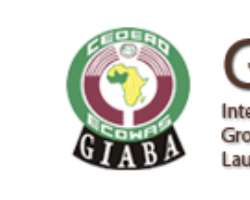FATF Visits Nigeria This Week.....As Stakeholders Take Steps To Meet Standards

There are palpable concerns in Nigerian government circles over the expected visit of the Financial Action Task Force (FATF) to the country this week.
The onsite visit, scheduled for 12th and 13th of September, 2013, is meant to facilitate the delisting of Nigeria from their list of High-Risk Jurisdictions, depending on its outcome.
Atlantic Reporters' investigations revealed that key stakeholders in the anti-money laundering and terrorism sectors in Nigeria have been working round the clock, trying to arrive at a position to present to the group on efforts made in advancing the war against the duo of money laundering and terrorism in the Country. The major concerns are that certain relevant bills required by the FATF are still pending in the National Assembly.
The relevant Bills that were presented to the public recently through a stakeholders' session were the Proceeds of Crime Bill, the Mutual Legal Assistance Bill, the Nigerian Financial Intelligence Bill, the Whistle Blowers' Bill and the Witness Protection Bill.
It would also be recalled that the National Assembly amended the 2011 anti-money laundering law and the prevention of terrorism law in 2012 and early 2013 respectively, with a view to enhancing Nigeria's rating internationally.
The outstanding Bills, some of which are already at the National Assembly may lead to a situation where Nigeria's rating may not be as favourable as contemplated.
This, sources say, calls for urgent synergy between the executive and the National Assembly to ensure quick passage of the laws.
Speaking on the actual position of the relevant Bills on anti-money laundering and financing of terrorism at the National Assembly, a federal lawmaker who does not want his name on print explained that the Bills would be presented for reading as soon as the National Assembly resumes.
He expressed concern over increasing cases of terrorism and money laundering in the country and reiterated the need for the strengthening of the legal framework against terrorism, money laundering and corruption, even as he promised to support the sponsors of the Bill in fast-tracking the process.
Continuing, the law-maker blamed the relevant agencies on anti-corruption and money laundering for not taking appropriate steps in educating the law-makers on the actual implications of these Bills on time.
Adding his voice, a member of the House of Representatives Committee on anti-corruption, who also does not want his name in Print reiterated their readiness to move the process to the next stage, despite all odds.
The Federal Government recently took a step further, when it constituted a Cabinet Committee to accelerate the removal of Nigeria from the list of countries still having issues with the Financial Action Task Force (FATF), regarding Anti-Money laundering/Counter Financing Terrorism regimes.
The Committee under the chairmanship of the Vice President, Namadi Sambo during its maiden meeting pledged to ensure that Nigeria's name was completely removed from the list.
He noted that in a deliberate attempt to accelerate the delisting of Nigeria from FATF books, President Jonathan had constituted the high powered committee, charging members to work assiduously to ensure that the committee discharged its mandate effectively, stressing that the President remained determined to the delisting of Nigeria from countries that still have issues with FATF.
Vice President Sambo directed the immediate sanitisation of the country's international airports, particularly the enforcement of currency regime declaration by travellers.
The Chairman of the Presidential Task Force on FATF, Mr. Stephen Oronsaye, noted that the Presidential Committee has made considerable inroads in ensuring that Nigeria was removed from the FATF list, particularly in areas of strict implementation of rules and regulations in the financial system.
The Presidential Committee on FATF gets priority attention from the President to ensure the effective enforcement of laws and regulations on the control and prevention of laundering of illicit funds, including terrorism financing.
THE FINANCIAL ACTION TASK FORCE (FATF) IS AN INTER-GOVERNMENTAL BODY ESTABLISHED BY THE MINISTERS OF ITS MEMBER JURISDICTIONS. THE OBJECTIVES OF THE FATF ARE TO SET STANDARDS AND PROMOTE EFFECTIVE IMPLEMENTATION OF LEGAL, REGULATORY AND OPERATIONAL MEASURES FOR COMBATING MONEY LAUNDERING, TERRORIST FINANCING AND OTHER RELATED THREATS TO THE INTEGRITY OF THE INTERNATIONAL FINANCIAL SYSTEM.
IT MONITORS THE PROGRESS OF ITS MEMBERS IN IMPLEMENTING NECESSARY MEASURES, REVIEWS MONEY LAUNDERING AND TERRORIST FINANCING TECHNIQUES AND COUNTER-MEASURES, AND PROMOTES THE ADOPTION AND IMPLEMENTATION OF APPROPRIATE MEASURES GLOBALLY.
The key agencies that are tasked with the implementation of anti-money laundering and financing of terrorism measures in Nigeria include the EFCC, ICPC, the NFIU, DSS, MOJ, NDLEA, Nigeria Customs Service, the ONSA, the Police, and the Federal Ministry of Investment, Trade and Industry.
